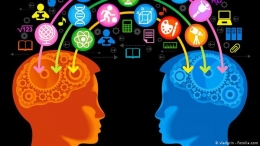Kveton, P., & Jelinek, M. (2016). Parenting styles and their relation to videogame addiction. International Journal of Psychological and Behavioural Sciences, 10(6), 1961--1964.
Sincek, D., Humer-Tomasic, J., & Duvnjak, I. (2017). Correlates of problematic gaming -- Is there support for proneness to risky behaviours? Psychiatria Danubina, 29(3), 302--312.
Throuvala, M. A., Griffiths, M. D., Rennoldson, M., & Kuss, D. J. (2018a). Clinical case study presentation on overcoming gaming addiction: When a quick fix is not enough (Vol. 7, p. 153). Paper presented at the 5th International Conference on Behavioral Addictions, Cologne, Germany.
Wang, C.-W., Chan, C. L. W., Mak, K.-K., Ho, S.-Y., Wong, P. W. C., & Ho, R. T. H. (2014). Prevalence and correlates of video and Internet gaming addiction among Hong Kong adolescents: A pilot study. The ScientificWorld Journal, 2014, 1--9.
Wartberg, L., Kriston, L., Kramer, M., Schwedler, A., Lincoln, T., & Kammerl, R. (2017). Internet gaming disorder in early adolescence: Associations with parental and adolescent mental health. European Psychiatry, 43, 14--18.
Zimmermann, P., & Iwanski, A. (2014). Emotion regulation from early adolescence to emerging adulthood and middle adulthood: Age differences, gender differences, and emotionspecific developmental variations. International Journal of Behavioral Development, 38(2), 182--194.
Buku
American Psychological Association. (2010). Ethical principles of psychologists and code of conduct. Washington, DC: American Psychological Association.
American Psychiatric Association. (2013). Diagnostic and statistical manual of mental disorders (DSM-5) (5th ed.). Washington, DC: American Psychiatric Association.
Deci, E. L., & Ryan, R. M. (1985). Intrinsic motivation and selfdetermination in human behavior. London, UK: Plenum.







